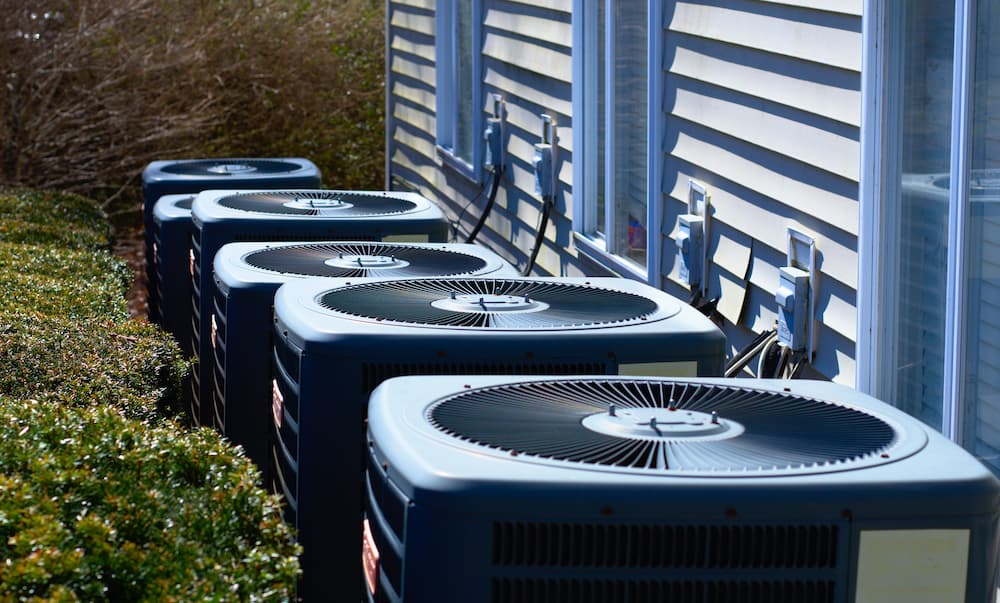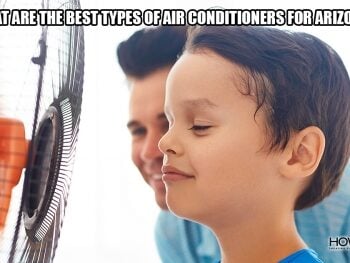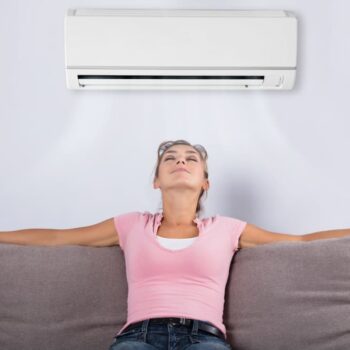- On March 22, 2023

There are many factors that can affect the cost, and it’s important to know how to estimate them so you know what to expect.
It’s normal to have a few questions when you start noticing problems with your heat or air conditioning in your Arizona home. How do I know what’s wrong with my system? What do I have to do to get it working again? How much will all of this cost me?
Most people find it difficult to estimate how much a home or business will cost to replace the heating and air conditioning. Many variables can change the final price. Howard Air & Plumbing will help give you a better idea of what to expect.
How Much Does it Cost to Replace a Heating and Air Conditioning System?
The average cost to replace an HVAC system in the United States ranges from $5,000 to $9,000. This assumes the home already has all of the required ductwork. You’ll be looking at additional costs if you need to have ductwork installed. The average price for a new HVAC unit plus ductwork can be anywhere from $7,000 to $13,000.
A complete HVAC unit includes several vital components. Some general examples include the outdoor unit, indoor unit, refrigeration lines, thermostat, and ductwork. If you don’t have to replace everything, your cost might be slightly lower than it would be for a complete replacement.
Average Cost to Replace HVAC System
There are many types of air conditioners, and each type is associated with a different price point. Central air conditioners are extremely common, especially here in the Phoenix area. Still, it’s worth covering all of the following:
- The average cost to replace central AC is $2,000 to $7,000.
- The average cost to replace window AC units is $150 to $1,000.
- The average cost to replace portable AC is $500 to $1,500.
- The average cost to replace heat pumps is $2,000 to $8,000.
- The average cost to replace ductless AC (also known as mini-split AC) is $2,000 to $15,000.
Some of these ranges are larger than others because the cost of the equipment can vary dramatically based on some of the variable factors discussed below. If you also need to install ductwork, you might need to budget another $2,000 to $3,000 on top of the above-mentioned costs.
Average Cost to Replace Furnace
Replacing a furnace isn’t usually quite as much of an emergency as replacing the A/C here in the Phoenix area. Still, there are several days each year when temperatures drop low enough that you’ll probably want to have reliable heating in your home or business. The cost of replacing a furnace can vary depending on the type. Here are the average prices for the four most common types of heaters:
- The average cost to replace a gas furnace is $2,000 to $4,500.
- The average cost to replace an electric furnace is $1,500 to $2,500.
- The average cost to replace an oil furnace is $4,000 to $7,000.
- The average cost to replace a radiator is $2,000 to $4,000.
Again, you might want to budget for an additional $2,000 to $3,000 if you’re going to need new ductwork as well.
Factors That Affect Your Average Cost to Replace Heating and Air Conditioning
If you looking for an exact estimate of how much it might cost to replace heating and air conditioning in your home, or maybe you’re disappointed by these wide ranges. These averages are inexact because a great deal of customization goes into finding your perfect HVAC system. Once you understand the following factors, you’ll be able to budget more precisely:
- Required Capacity – It doesn’t take as much power to heat and cool a 1,000-square-foot home as a building several times the size.
- Efficiency – A/C units with higher SEER2 ratings are more efficient. They’re more expensive upfront but will lower your energy bills down the road.
- Brand – Some air conditioners are more expensive than others, and you might pay more for one of the most trusted brands.
- Installation Details – If your equipment goes into an attic or cramped crawl space, the HVAC installation might cost more.
- Premium Features – Some add-ons like UV light filters, zoning technology, smart thermostats, and variable speed fans can increase the cost.
This information can help you budget for your new heating and air conditioning installation, but the best way to know for sure is to get an estimate.
Average Cost to Replace Heating and Air Conditioning Near Phoenix
Howard Air & Plumbing has been serving the Phoenix area for more than four decades. We’re your local experts for all things heating and cooling and can tell you exactly how much your new system will cost. Contact us today to get started.
Factors That Affect Your Average Cost to Replace Heating and Air Conditioning
Each household’s average cost to replace heating and air conditioning will differ. That said, you can normally come up with a good estimate by thinking about the factors that go into the cost of replacing air conditioner units. Here are five of the most important things to keep in mind:
- Required Capacity – It doesn’t take as much power to heat and cool a 1,000-square-foot home as a building several times the size. The size of your property will be one of the biggest factors in the average cost to replace heating and air conditioning systems. Working with an HVAC company that knows how to right-size your equipment helps you get the capacity you need without overpaying.
- Efficiency – A/C units with higher SEER2 ratings are more efficient. They’re more expensive upfront but will lower your energy bills down the road. When you look at a few options, you should get an idea of what the costs would be immediately as well as in the coming years.
- Brand – Some air conditioners are more expensive than others, and you might pay more for one of the most trusted brands. Paying more can be worth it if the equipment lasts longer. For example, Trane products offer a great mix of reliability, efficiency, and value.
- Installation Details – If your equipment goes into an attic or cramped crawl space, the installation might cost more. Installations in accessible first-floor closets are much easier and less expensive.
- Premium Features – Some add-ons like UV light filters, zoning technology, smart thermostats, and variable speed fans can increase the cost. Are convenience and control worth it to you?
Once you’re aware of all the factors that go into the cost of your new HVAC equipment, you can start to look for opportunities to control your expenses.
Tips For Reducing The Cost Of Replacing An Air Conditioning Unit
There are parts of the cost you can control and parts you can’t. There’s nothing you can do about your existing HVAC equipment being in a tight attic. If your house is 3,000 square feet, you’ll need a unit with a high enough capacity. You still have options, though, like dialing back the efficiency, choosing an affordable AC brand, or skipping some of the more advanced features.
Think Long-Term as Well
There’s a reason people choose cheap supplies when they’re flipping houses and high-quality supplies when it’s for their own forever homes. Some appliances are built to last, and others aren’t. The same is true for your HVAC system. If you’re going to own this property for a long time, investing in the best heating and air conditioning you can afford might save you money down the road.
You Don’t Need to Go Crazy on Efficiency
Investing in a great air conditioner doesn’t necessarily mean spending as much as possible. There are certainly benefits to going all out for an air conditioner with a SEER2 rating of 22. That said, an average SEER2 rating of 16 might be more than enough for your needs. If you’re not sure how much you value efficiency, you can contact an HVAC company in Phoenix about the effects of your SEER2 rating on short-term and long-term costs.
Choose a Reliable HVAC Company
First, working with a trusted HVAC company will help you rest assured that you’re not getting gouged on price. It also gives you confidence that the work will last.
Air Conditioner FAQs
Understandably, you may still have some questions about the average cost of replacing heating and air conditioning. Here are a few of the most common ones we hear.
How much does an air conditioner cost for a 2000-square-foot home?
The national average cost to replace an air conditioner is between $3,000 and $7,000. You can expect to be closer to the higher end of the range in Phoenix because we need more powerful AC here.
Can I just replace my outside AC unit?
If your outside AC unit is unsalvageable, your inside unit probably isn’t in great shape either. One significant exception is if your outside starts to malfunction when it’s still relatively new or the equipment is covered under warranty.
Is it worth replacing the compressor on an AC unit?
It doesn’t hurt to ask if your compressor is under warranty. If it’s not, your best bet is probably to replace the whole unit. Replacing the compressor alone would be almost as expensive as an entirely new AC.
Contact the Heating and Air Conditioning Replacement Pros Today!
If you’re in need of a new HVAC system, reach out to Howard Air & Plumbing today for premium HVAC service throughout the Phoenix Valley.


















0 Comments